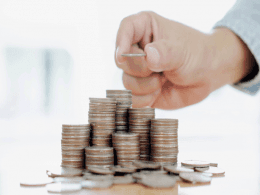Currency worth around Rs 14 lakh crore is in circulation in the economy in high-denomination notes and how much of this will come back to the government is unpredictable, said Finance Minister Arun Jaitley.
“There will be strain on the system while replacing the currency. The pressure is natural when you are replacing almost 86% of the currency in value term,†Jaitley said.
“When demonetisation happened in 1978, the total high-value currency was worth mere Rs 80 crore. Today, the same high-denomination currency is worth Rs 14 lakh crore; so you can understand the difference between the situations,†he said in an interview to Hindi news channel Aaj Tak.
According to the finance minister, in all developed countries, currency is only 4% of the total GDP, while in India it is close to 12%; so secrecy of the operation was important. “We will be able to supply sufficient currency within three weeks,†Jaitley said.
Attacking Congress and others, the finance minister said in another interview to CNN News 18 that “People are willing to suffer a little inconvenience for a better future. Politicians who are complaining are exposing themselves. The polarisation is between the people of India and some politicians on the other side.â€
“Anyone who follows the government’s move should have predicted this. We first introduced ‘Jan Dhan Accounts’ to connect people with bank accounts and even with the zero balance accounts we gave them debit cards. Then we went behind people who have bank accounts abroad and asked them to come clean about it. Then we asked people to declare their unaccounted money voluntarily,†said Jaitley.
Countering the allegations of opposition parties, Jaitley said Congress never took any step to curb black money when it was in power. “I am also disappointed with the Left parties. The position that they have taken is completely contrary to the theory of Marxism.â€
The finance minister said taxman will not hound those making small deposits in scrapped Rs 500 and Rs 1,000 currency notes. He, however, said those depositing large sums of unaccounted money will have to face the consequences under tax laws.
Late on Tuesday, the government took the country by surprise and scrapped Rs 500 and Rs 1,000 currency notes which can have a significant impact on the country’s economy and may be disruptive in the short term.
Lakhs of anxious people continued to make a beeline in front of banks and post offices on Friday to exchange old Rs 500 and Rs 1,000 notes. Most private and public sector bank branches were seen jam-packed with customers.
All banks have been directed to work for 12 hours on Thursday, Friday, Saturday and Sunday to clear the rush of desperate customers for exchange transactions and, if required, remain open even next Sunday (November 20).
GST
Jaitley said the government is trying earnestly to build a consensus with the states on sharing of administrative control on assessees to ensure that the April 1 deadline for rolling out the goods and services tax (GST) is met.
“We are making all efforts to introduce GST from April 1, 2017. GST has to be implemented latest by September 16, 2017, and if it is not implemented by then, states will not be able to collect their share of taxes, and hence, there is not enough scope to further delay the decision,†Jaitley said while addressing the Economics Editors' Conference in New Delhi.
(With Inputs from PTI)
Like this report? Sign up for our daily newsletter to get our top reports.







